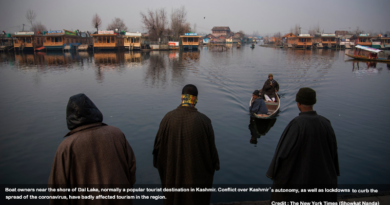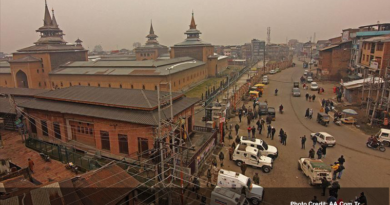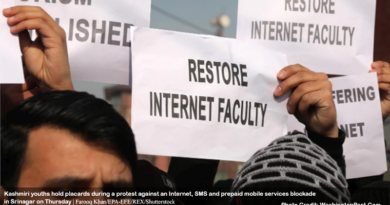Saudi Arabia frets, threatens to torch region
Within hours of Saudi Arabia warning its Western patrons that it would “act alone” in pursuing its regional interests, three Iranian Revolutionary Guards were killed in a roadside bomb blast in the country’s southeast province.
Is this Saudi Arabia delivering on its veiled threat to sabotage recent Western diplomacy and to torch the Middle East?
The three Iranian soldiers killed on Wednesday are the latest victims in a spate of covert military attacks to have hit the Sistan-Baluchistan Province bordering Afghanistan and Pakistan.
At the end of October, 14 Iranian border guards were killed in an attack near the city of Saravan. Two weeks later, the provincial prosecutor, Ebrahim Hamidi, and his driver, were shot dead in a hit-style assassination in the regional capital of Zabol. The groups behind the upsurge in violence in Iran’s remote border area – so-called Jaish al Adl and Jundallah – share the same extremist religious beliefs as the Takfiri militants that Saudi Arabia is bankrolling and arming in Syria, Iraq, Lebanon and Yemen. All these Takfiris have an overlapping relationship with the Al Qaeda network – which was created originally by Saudi, American and British military intelligence during the 1980s.
It is therefore reasonable to conjecture that the latest terror attacks to have hit Iran are being sponsored by Saudi Arabia. The intelligence, logistics and extremist ideology – in particular the venomous hatred towards Shia Islam – are consistent with Saudi control. An added factor is motivation.
This week the House of Saud reiterated its bitter sense of betrayal by Washington and London with regard to recent geopolitical developments.
In an opinion article published in the New York Times on Tuesday, the Saudi ambassador to Britain was scathing in remarks about mercurial American and British foreign policy in the Middle East.
Mohammed bin Nawaf bin Abdulaziz al Saud complained about how a century-old alliance with Washington and London was being strained to breaking point, and that Saudi Arabia would be forced to “go it alone” to safeguard its regional interests.
Al Saud wrote: “We believe that many of the West’s policies on both Iran and Syria risk the stability and security of the Middle East. This is a dangerous gamble, about which we cannot remain silent, and will not stand idly by.”
This outburst, laced with veiled threats of sinister dissenting action, is but the latest wave of fury emanating from the House of Saud. In recent weeks, similar acrimonious comments have been issued by Saudi spymaster, Prince Bandar bin Sultan, the foreign minister Prince Faisal and former interior chief, Prince Turki.
The Saudi bone of contention is their perception that the Western powers are dropping the regime-change agenda towards Shia allies Syria and Iran, both of which are seen as a nemesis by the Wahhabi House of Saud.
The P5+1 interim agreement over Iran’s nuclear energy program and the possible normalization of relations between Washington and Tehran is causing the Saudi rulers to lose sleep. They fear that in time the diplomatic process will serve to bolster Iran’s influence in the Middle East at the expense of Saudi demise.
As for Syria, the Saudis have been livid ever since US President Barack Obama backed away last September from his initial plan to launch air strikes against the government of Bashar Assad in Damascus.
As the Saudi diplomat commented in the New York Times: “The West has allowed one regime to survive and the other to continue its program for uranium enrichment, with all the consequent dangers of weaponization. What price is ‘peace’ though, when it is made with such regimes?”
It’s cloyingly rich for the absolute, feudal monarchy of Saudi Arabia to refer to elected governments in Syria and Iran as “regimes”. It’s even richer coming from the Saudi regime that has fomented and fuelled much of the bloodshed in Syria with its support for myriad Takfiri terror gangs – the latest incarnation of which is the so-called Islamic Front.
Saudi angst at Western betrayal will have hit volcanic proportions after Washington and London are now reportedly relenting on the Assad government being part of the political transition in Syria. This, however, is not any benign conversion by the West. It is simply tacit acknowledgment by them that the covert terrorist regime-change agenda has been defeated – after nearly three years of mayhem and more than 100,000 dead.
What the Saudis (and Israelis) are mistaking is the perception of a fundamental change in Western policy. Earlier this month, speaking at the Brookings Institute, both President Obama and Secretary of State John Kerry spoke of “tactical change” not “strategic change”.
That suggests that what the West is aiming at is to exercise its geopolitical objectives towards Syria and Iran through different means, that is, politically not militarily.
The trouble with the Saudis (and Israelis) is that they are stuck in a single-groove mentality of aggression, unable to “appreciate” the more sophisticated arts of political machination.
But like a spurned mistress, there seems to be no way to assuage Saudi anguish at being “betrayed”.
Given Saudi Arabia’s growing collaboration with the Israeli regime in military intelligence and the already rampant covert terrorism that these two are sponsoring across the region, the House of Saud’s threats of “going it alone” are a matter of deep concern.
The explosive sectarian tensions that Saudi Arabia and Israel are recklessly detonating could so easily ignite into all-out regional war.
When the Saudis talk about wanting “regional stability and security” what they really mean is the diametric opposite for it is only through conflict and division that this despotic regime can maintain itself.
“We will act to fulfill [our] responsibilities, with or without the support of our Western partners,” wrote the Saudi diplomat.
Ominously, al Saud added: “Nothing is ruled out in our pursuit of sustainable peace and stability in the [region].”
Are the latest terror attacks in Iran evidence that the Saudis are indeed “going it alone” – in a desperate attempt to drive the region over a precipice so that their despotic regime can survive?
Courtesy :
http://www.presstv.ir/detail/2013/12/19/340857/saudis-fret-threaten-to-torch-region/



